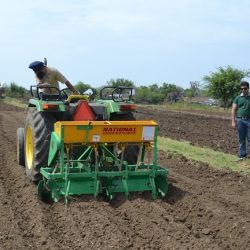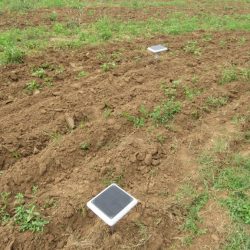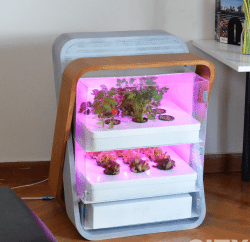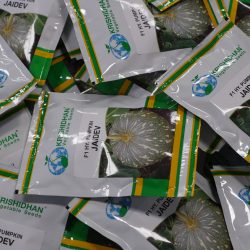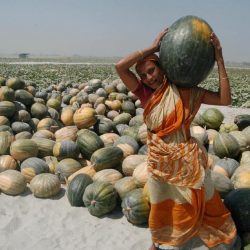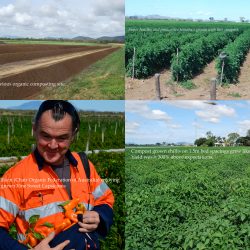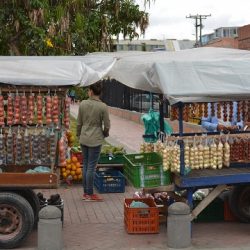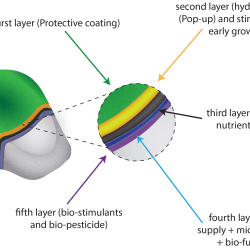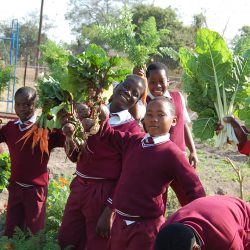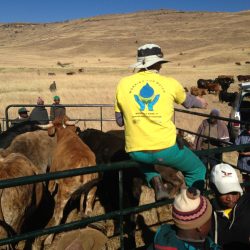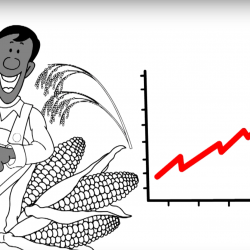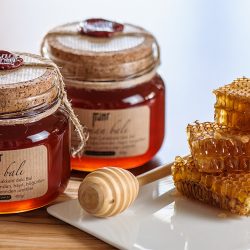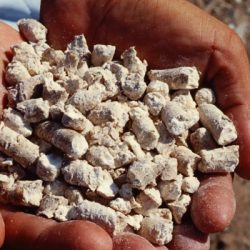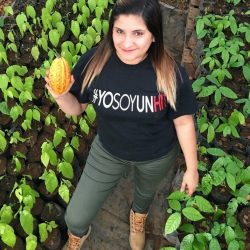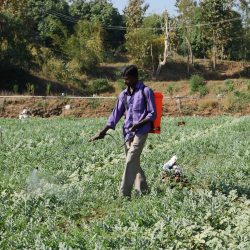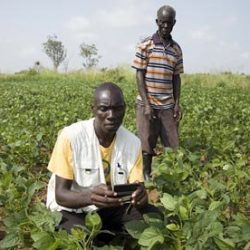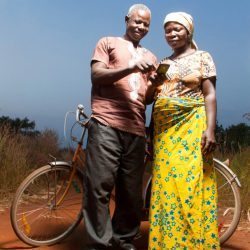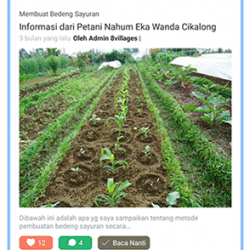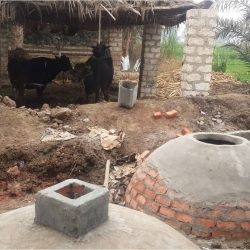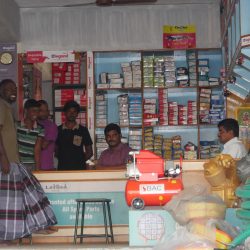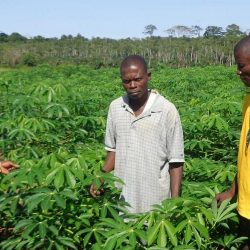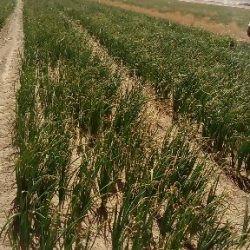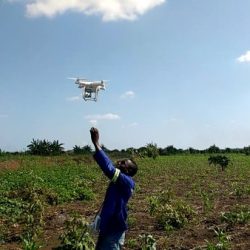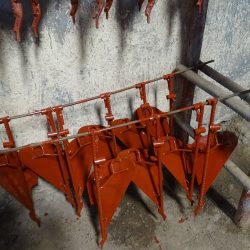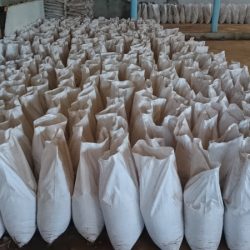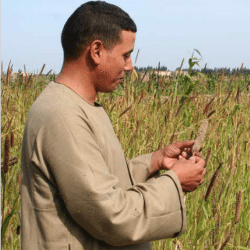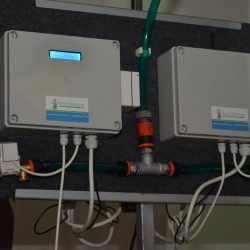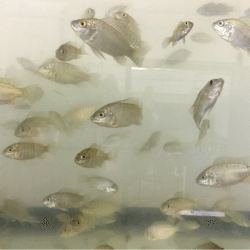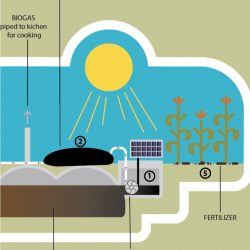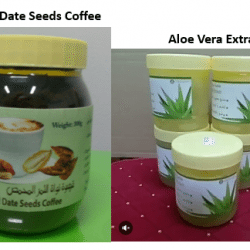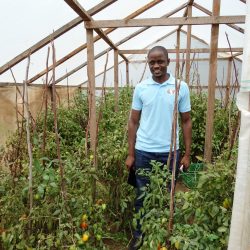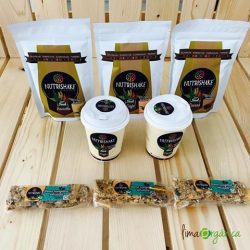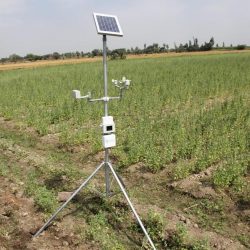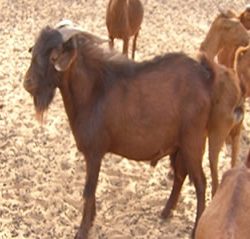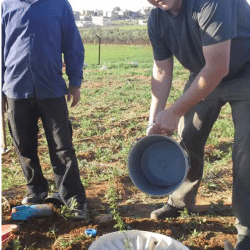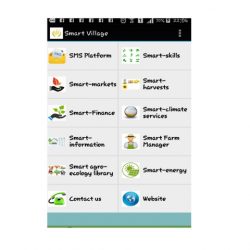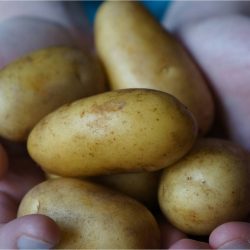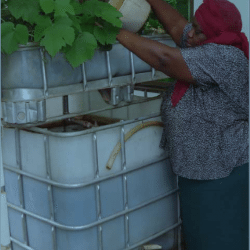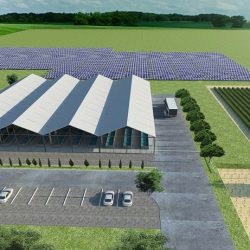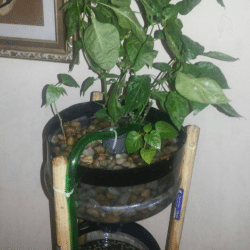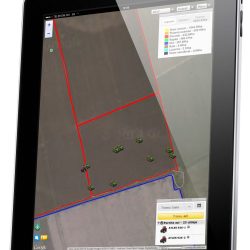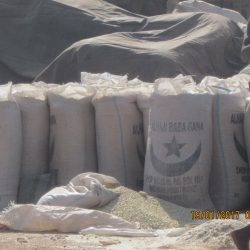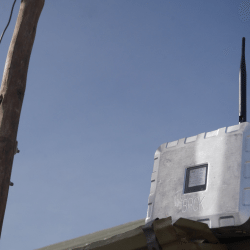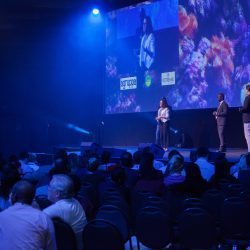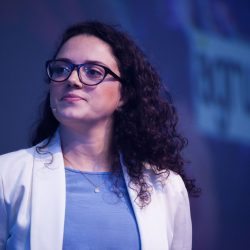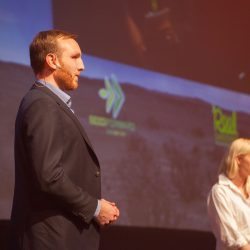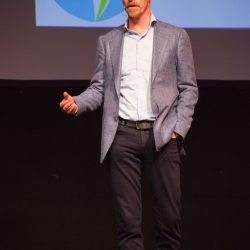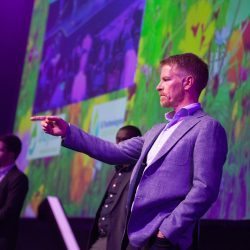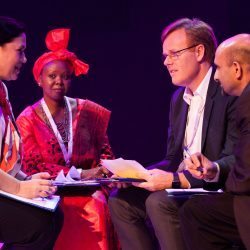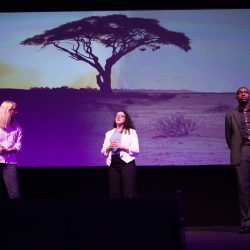Address: 161 Maude St, Sandton, Johannesburg, 2196, South Africa
The Global Agripreneurs Summit is a one-of-a-kind vibrant event that showcases the latest innovations in Food, AgTech, and Agriculture as international visionaries face-off on a global stage. The event brings together agripreneurs, farmers, investors, industry leaders, implementers and international media.
Australia
Cocktail Evening at the premises of Natural Evolution
Hear the award winning journey of Rob & Krista Watkins
Networking Opportunity
Fireside Chat with the Judges
Registration & Pitch Check
Light lunch on arrival
Welcome: Christine Doan, Founder, Startup & Innovation Tablelands
Pitching Battle 1
Speaker: Fabian Gallo, HTM Complete "Advancing Farm Management"
Pitch Battle 2
Afternoon Tea
Pitch Battle 3
Speaker: Alistair Hart, Mangoesmapping "Using Drones for AG"
Speaker: Erica Blumson, Farmer Meets the Foodie
Speaker: Jeffrey Schrale, ANZ Agribusiness Manager
Final Pitch Judging
Winners from each round will face the judge for final questions
Public Q&A
Sunset Drinks and Networking
Future Agro Challenge Celebration Dinner
Final Speeches
Special Guest Speech from Sam Trethewey from SproutX
Winner Announcement
Australia 2
Welcome Party and Fireside Chat
Located on-site at the Costa Farming premises. Costa is Australia’s leading grower, packer and marketer of premium quality fresh fruit and vegetables. Hear the Costa Farming story and get up close and personal with the five FAC 2018 judges.
Costa Farm, 104 Beantree Road, Atherton
Pitching Competition
Hosted at North Queensland’s first and only distillery and one of the premier attractions on the Atherton Tablelands, Mt Uncle Distillery. Hear from incredible speakers throughout the day, including last year’s Australian and Global FAC winner, David Davies from AgUnity.
Mt Uncle Distillery, 1819 Chewko Road, Walkamin
End of Pitching Competition
End of Welcome Party and Fireside Chat
Winner Announcement and Celebration Dinner
Hosted at the Yungaburra Hotel with special guest speaker Larry Lopez. Larry has spent most of the past 25 years involved in projects that enable innovation. He has deep experience in technology finance having spent 17 years at Silicon Valley Bank. Larry is the director of several technology-related private companies and venture capital funds, and sits on a number of not for profit boards in Australia and the United States.
Yungaburra Pub, 6 Kehoe Place, Yungaburra
End of Celebration Dinner
Chad
Pitch Training
Exchange with Bekoutou Karmel, FAC Chad Winner 2017
Break
Selection Pitch Preparation
Selection Pitch
FAC Chad National Champions
Costa Rica
Opening
Welcome Address
Keynote Speaker
National FAC Battles
Winner Announcement
Default
Registration
Welcome Address
Battle 1
Keynote
Networking
Battle 2
Case Study
Battle 3
Award Ceremony
Closing Remarks
GAS 2019
Registration
Official Opening
Mavroudis Voridis, Minister of Rural Development and Food of the Hellenic Republic
Geoffrey Pyatt, U.S. Ambassador to the Hellenic Republic
Carla Tanas, Co-Founder of ID-GC, Future Agro Challenge
Firechat:
Mavroudis Voridis, Minister of Rural Development and Food of the Hellenic Republic
Petros Efthymiou, former President of the Parliamentary Assembly of OSCE (Organisation for Security and Cooperation in Europe).
FAC Global Championships Jury Session (Invite Only)
Registration
Blockchain: Creating the Food Supply Chains of the Future
Blockchain in food supply chains and agriculture is estimated to be USD 60.8 million in 2018 and is projected to reach USD 429.7 million by 2023. Blockchain also helps to keep tabs on abundant commodities and reduce cases of illegal harvesting and shipping frauds. The United Nations reveals that food frauds cost the global economy around $40 billion per year because of illicit trades. Transparency and food integrity become a solution through this technology revolutionizing the industry through procurement tracking, crop and food control, weather crisis control, and managing agricultural finance? How does this influence data and real time management and enhance the role of the farmer? How can the consumer check the quality of food before they eat it? Could tracking information about our food become our near future? How do we address the challenges regarding blockchain technology, such as business implications and cost benefit limitations, due to the complexity of the technology? What regulatory constraints are we facing?
- Christopher Brewster, Senior Scientist at TNO, and Professor in the Application of Emerging Technologies at the Institute of Data Science, Maastricht University
- David Davies, Founder and CEO at AgUnity, Winner of the 2018 Future Agro Challenge Global Championships
- Erol User, President and CEO, User Corporation
- Augustas Alesiunas, CEO StopFakeFood.com
Could the Cloud and Quantum Computing Help Feed the World?
The fusion of agriculture and technology is changing how food is created. All over the world, software developers, data scientists, agronomists and farmers are joining forces to enhance food production with the use of technology and especially the cloud, sometimes with very dramatic results. Quantum computer,” a totally mind-bending machine that takes advantage of the fact that tiny particles like electrons can be in many states at once — not just a “one” or a “zero” but everything in between would allow you to more quickly and accurately analyze catalytic processes among other problems like it with equally large impacts. For example, scientists and engineers have been working for decades to improve this process of fertilizers by experimenting with different catalysts, but little progress has been made because there are so many possibilities – a nearly infinite number. With the use of quantum computers these challenges no longer take centuries to achieve, rather a few experimentations.
- Ioannis Athanasiadis, Associate Professor at Wageningen University
- Claudia Mauresan – Policy Officer, Space Data unit of the Directorate General for Internal Market, Industry, Entrepreneurship and SMEs (DG GROW), European Commission
- Vladimir Crnojević - Director of the BioSense Institute
- Moderator: Apostolos Maggariadis, Political Correspondent for SKAI TV and Editor-in-Chief of HISTORIES
Networking Break
AI & Robotics: Opportunities and challenges from farm to fork
An overview and update of the agrifood automation market, its challenges, opportunities and developments in AI & Robotic technology that will affect the industry over the next years. What is available in terms of technologies nowadays? How to apply clever automation strategies and deep learning for smart data collection? What successful advances and remaining challenges are rising in order to wide-scale adoption? How do you scale automation and robotics? What should we start planning for in 2030 in supply chain innovation?
- Andrew Bate, Founder of SwarmFarm Robotics and Director of Bendee Farming Queensland, Australia
- Sotiris Bantas, Founder and CEO Centaur Analytics
- Nuria Garcia, AI and Robotics for AgriFood Programme at Eurecat
- Deepak Pareek, Serial Technopreneur in Agritech companies (see if he changes from big diata to here)
- Yahoel Essen, Founder of Eleos Robotic
- Moderator: Spyros Fountas, Editor-in-Chief in the ELSEVIER journal “Computers and Electronics in Agriculture and Associate Professor at Agricultural University of Athens, Department of Natural Resources Management and Agricultural Engineering
How are Corporates Advancing Agriculture for the Future Farmer 4.0?
A number of global trends are influencing food security, poverty, and the overall sustainability of food and agricultural systems. To meet these challenges will require a concerted effort by governments, investors, and innovative agricultural technologies. How fast are corporates reacting to the exponential change in the global food chain? Are they adapting well? What new models have they strategically incorporated to keep up with fast changing trends? What advances will we foresee in the food supply chain now and in the future? What new models will the food logistics industry absorb? How do we see relationships between corporations and small-scale farmers transforming?
- Christina Legaki, President and General Manager, Corteva
- Athanassios Savvakis, President, Federation of Industries of Greece
- Svetlana BOYANOVA - Institute for Agrostrategies and Innovation
- Anagnostis Argiriou - Senior Scientist, Deputy Director
- Moderator: Cecilia Wessinger, Community Manager, Kauffman Foundation
Networking Break
Proteins for the Future
The first generation alternative proteins are products based on soy. The second generation of alternatives are selling the value proposition of bringing to the market a plant-based product that looks like meat. Insects are an additional source of natural proteins, in addition to sufficient minerals. Cultured meat, meanwhile, is a fairly new concept that refers to the concept of meat, but is produced via cell structure, rather than from a slaughtered animal. While animal protein sources, such as meat, poultry, eggs, fish and dairy, are considered complete protein sources, containing all the amino acids needed for optimal bodily function how is the livestock industry working to improve its environmental impact? What does the future of protein look like?
- Xavier Marcenac – CEO of Nasekomo (animal feed)
- Daniela Arias – CTO of CRIC (alternative protein food consumption)
- Benjamina Bollav – Co-Founder and CEO of Higher Steaks (cultured meat)
Gala (Invite Only & Investor Special Ticket for All Days)
VIP B2B Registration (Invite Only & Investor Special Ticket)
VIP B2B (Invite Only & Investor Special Ticket)
End of VIP B2B
Registration Day 3 (public)
Agritech in the Anthropocene
This talk will discuss the current state of climate breakdown and the implications for the use of technology in agriculture and food production. Rapid climate change including collapse of usual weather patterns is resulting in extreme drought and floods across many food producing regions including within Europe. We will discuss how priorities need to change in this context to help ensure human survival. This also may necessitate a rethink of the nature and form of innovation. Data driven climate smart agriculture is one such approach where we take the priorities of agroecology and agroforestry as primary, and seek to identify what role a range of agritech technologies can play to support environmentally sustainable agricultural production. A range of existing and emerging technologies will be discussed from this perspective. We expect our approach to provoke a debate on the prioritisation of investment choices in specific technologies, as well forcing a rethink of our approach to ICT in the agrifood sector.
- Christopher Brewster, Senior Scientist at TNO, and Professor in the Application of Emerging Technologies at the Institute of Data Science, Maastricht University.
New Financing Models for Agribusiness and the Food Industry
- Carlina Toledo, Founder of Credifomento
- Omar Warraich, Founder of Go Agrimart
- Natalie Miller, Founder of GreenFingers Mobile
- Paul Kidner, People’s Trust
- Ioannis Chaniotakis, Senior Director Agricultural Sector, Piraeus Bank
Sub-Sahara Africa: Is its potential feasible by 2030?
There are two truths today about African agriculture: significant progress has been made, and there is potential for much more. Yet there is vast room for improvement. Africa remains a net importer of food, although it has 60% of the world’s uncultivated arable land. As its population has doubled overall and tripled in urban areas in the past 30 years, agricultural production and food security have struggled to keep pace. Africa is the only continent where the absolute number of undernourished people has increased over the past 30 years. Africa will have a population of 2 billion by 2050, and agriculture will be central to feeding all of those people. Agricultural transformation must build social cohesion, create beneficial continental trade, provide a platform for global exports, and, most importantly, help create millions of jobs while pulling subsistence farmers out of poverty. Transforming the agricultural value chain must take place at three leves – farmer, market, and cluster – will this be feasible by 2030?
- Agata, Managing Partner at DEV Mozambique
- Apeh Omede, CEO and Co-Founder at The Greenrise Innovation Hub Nigeria Limited
- Alhousseini Tambo Djibo, CEO of Empower SME’s
- Hamed Besheti, Founder of Boreal Light GmbH
- Flo Mosoane, CEO of Foodmakers Africa
Asia: Could the rural economy reinvent new opportunities?
An economic transformation has occurred in much of rural Asia translating into dietary shifts. The rural economy has increasingly linked to a rapidly integrating world economy and rural Asia faces new opportunities and challenges. Due to the region's rapid growth, a productive rural economy is the best safety net for the rural poor. The failures of agricultural and rural public policies have led to the marginalisation, if not the exclusion, of rural areas from development processes. Today, it is clear that migratory phenomena are the ultimate consequences of these complex situations of poverty and unequal access to wealth, combined with political conflicts. How is Asia reinventing its rural economy? How can agripreneurship provide an opportunity to rebuilding the rural economy?
- Carl Pray, Director of Agricultural, Food and Resource Economic Department at Rutgers University
- Deepak Pareek, Serial Technopreneur of many agritech companies
- Omar Majid Warraich, Founder, GO AGRIMART(Pvt) Ltd.
- Andre Laperriere– Executive Director at the Global Open Data Initiative for Agriculture and Nutrition
- Ramy Boujawdeh, Deputy General Manager at Berytech
- Hayk Asriyants, CEO of Tbilisi Startup Bureau
Latin America: Rural wealth, agripreneurship, and conflict
A global economic growth fuelled by accessible and cheap resources provides opportunities for many Latin American countries. Increased migration changes and displacement is leading a redesign of benefits where governments are tempted to inflate away debt to reduce social inequality. How can agripreneurship contribute to this economical shift and would could this be translated into?
- Luis Salazar, Founder at Investa VB
- Emmanuel Gutierrez, Chief Educational Consultant
- Carlina Toledo, Founder of Credifomento
Frontier Markets and Their Current Role in the Future Farmer 4.0
Australia, North America, Europe and the GCC are taking lead in the agrifood innovation scene. As frontier markets what role are they playing for the future farmer 4.0, the consumer, and all stakeholders involved?
Workshop: Funding for Agtech Startups: Bridging needs with opportunities
- Danijel Pavlica
- Maria Vogiatzi
- Xenophon Tsilibaris
- Grigoris Chatzikostas
- Harald Sundmaeker
Leaders Debate: AI & Robotics and the Role of the Farmer
The aim of this debate is to showcase the fundamental roles of the Future Farmer 4.0 and what this will mean? With AI & Robotics supporting much of the farmers daily tasks, we begin to define which of these tasks can be substituted, those that need be complimentary with AI & Robotics, and those that must remain as the role of the farmer (if any).
For the sake of a debate, we plan to have two sides, those who may substantiate that the future role of the farmer will be substituted by AI & Robotics and those that may substantiate that the role of the farmer must not be substituted.
Announcement of the 'Agripreneur of the Year 2019'
Leaders Debate: Synthetic Biology or Regenerative Agriculture?
The aim of this debate is to showcase the relative merits of each approach and discuss the opportunities and threats of a multifaceted global discussion signifying if the powerful cocktail of gene-editing, microbials, and synthetic biology will create the necessary opportunities to feed the growing population by 2050 or may regenerative agriculture do the same?
Innovation Marketplace
Big Data: Empowering the farmer and the shift in the supply chain
Big Data is expect to have a large impact on Smart Farming and involves the whole supply chain. Smart sensors and devices produce big amounts of data that provide unprecedented decision-making capabilities. What is major shifts are expected in roles and power relations among traditional and non-traditional players. How is the farmer being empowered? What does this mean for corporations and consumers?
- Andrew Laperriere, Executive Directors at the Global Open Data Initiative for Agriculture and Nutrition
- David Blazevski, Founder of Fresh Agriculture Technologies
- Matteo Vanotti, xfarm
- Stavros Tekes, CTO of Agroapps
The Trust Barometer: How and Why the Food System Should Be Transformed
With a clear climate crisis and a rate of over 30% of global GHG emissions due to food production, it is high time to make our food system more sustainable, healthy and trusted. To meet these challenges and create a strong agrifood industry we need to know not only the existing reality, but also what consumers want and need and how we can build their trust in the food sector. This transformation will be achieved focusing on innovation, education, entrepreneurship and joint efforts. So we need to reflect - Are we making the right choices? Do we know how to make the right choices? – and – Can we deploy the technologies to create better food solutions for human and planet health?
- Begona Perez-Villarreal, EIT Food Innovation Hub for Southern Europe
The Greek Primary Sector: issues and challenges
Greek primary sector Is contributing the 3% of the Gross Domestic Program. It Is double the EU average. Still, there Is room for further development, especially In the exports contribution. Based on the aforementioned research from Διανέοσις, distinguished members of the Industry comment on that and on the new model to be Implemented.
- Alkis Alexandrou, Deputy General Manager of Agricultural Sector, Piraeus Bank
- Konstantinos Baginetas, General Secretary of Agriculture Policy & Management of European Funds
- Emmanouil Dermitzakis, Professor of Genetics, University of Geneva; Director, Health 2030 Genome Center
- Moderator: Nektarios Notis, Founder at Notice Content and Services
Modern International Practices in Sustainable Rural Development
The agri-food sector is an important driver of development at the regional and local level. How do local and regional food systems relate to the circular economy? What are the challenges for societies and the environment? What is the role of the state and what is the role of private initiative? Good examples both internationally and in our country present opportunities for learning and inspiration and harness the agri-food sector’s potential in further contributing to the sustainability of local communities.
- Antheia Kotsi, Art Curator and organizer of Lemnos Philema Gastronomy & Wine Festival
- Carl Pray, Professor of Rutgers university, Director of Agricultural, Food and Recource Economic Department)
- Prodromos Kalaitzis, Policy advisor, Mediterranean Agronomic Institute of Chania
- Jessica Fealy, Board Director with Northern Gulf Resource Management Group; Advisor at Agrifutures Australia and Regional Economies Centre of Excellence
- Moderator: Effie Lazaridou,
The Case for a Stronger Common Agricultural Policy for Climate Action
- Konstantinos Skrekas, Deputy Minister of Rural Development and Foodstuff
- Konstantinos-Evaggelos Aravosis, General Secretary of Natural Environment and Water, Ministry of Rural Development an Food
- Angeliki Kosmopoulou, Executive Director A.C. Laskaridis Charitable Foundation
- Moderator: Nikos Ypofantis, Journalist, SKAI TV
Innovative Food Waste Solutions
World Hunger is on the rise; yet, an estimated one-third of all food produced globally is lost or goes to waste. Food loss refers to any food that is lost in the supply chain between the producer and the market. This may be the result of pre-harvest problems, such as pest infestations, or problems in harvesting, handling, storage, packing or transportation. Some of the underlying causes of food loss include the inadequacy of infrastructure, markets, price mechanisms or even the lack of legal frameworks. Food waste, on the other hand, refers to the discarding or alternative (non-food) use of food that is safe and nutritious for human consumption. We all have a part to play in reducing food loss and waste, not only for the sake of the food but for the resources that go into it. What innovations and technologies do we have in hand to accelerate this process?
- Raisa Segura – R&D Coordinator of Ento Piruw (food waste)
- Olumayowa Salu – Founder of FoodHubs Preservative Store Limited (post harvest)
- Aikaterini Kandiliari, Prosper
- Kiki Zinoviadou, Assistant Professor, Department of Food Science and Technology
- Moderator: Vee Bougani, CEO Sustainable Food Movement
Females in Agrifood: How to work for a gender-smart system?
Women play key roles as entrepreneurs and in the workforce throughout the agri-food systems. Yet, despite these contributions and their significant influence on household nutrition and wellbeing, women generally have less voice in decision making at multiple scales and face more severe constraints than men in accessing information, financial and technical services, and markets. The reorganization of the agrifood system in both the global North and South contexts demonstrates how new developments in family farming and industrial agriculture (particularly concerning labour), as well as the emergence of new alternative forms of farming, go along with shifts in gender relations and identities which may or may not provide opportunities for the empowerment of women. How can we work for a gender-smart system?
- Irina Taka, Vice President EVYP LLP
- Machi Simeonidou, Managing Director at Draxis
- Katerina Pramatari, Partner at uni.fund
- Agata, Managing Partner at DEV Mozambique
- Goretti Cortina, Partnerships Coordinator at the LadyAgri Impact Investment Hub
- Moderator: Cecilia Wessinger, Community Manager, Kauffman Foundation
Agrifood, Culture and Tourism: regional development in Greece
What are the challenges and opportunities for the agrifood sector as a key driver for rural development in Greece? How can food production systems intertwine with culture, tourism and gastronomy while creating value for local communities? What role can PDO and PGI products play in rural development? What are the prospects for agrotourism and gastronomy tourism in Greece?
- Gianna Balafouti, Professor of Gastronomy
- Vicky Krystallidou, Agronomist, Project Leader ‘‘Sheep & Goat Farming’’
- Serko Haroutounian, Vice Rector, Professor, Department of Animal Sciences and Aquaculture, School of Agricultural Production, Infrastructure and Environment, Lab. of Nutritional Physiology and Feeding
- Stavros Benos, President of Diazoma
- Moderator: Nana Darioti, Journalist
Networking Break
The Role of Financial Diplomacy in Empowering Extroversion
Deputy Minister of Foreign Affairs, responsible for financial diplomacy and extroversion, talks about promoting economic diplomacy as a key pillar for growth, employment and export enhancement, as well as, the proposals for implementing a national extroversion strategy and the perspectives of Greek agricultural products.
- Konstantinos Fragkogiannis, Deputy Minister of Foreign Affairs
Networking Break
A New Model of Cooperation for the Primary Sector
Presentation of a study that was developd from the research and analytics organization "διανέοσις". (https://www.dianeosis.org/), In May 2019
- Marianna Skylakaki, Founder & Editor at aθηΝΕΑ
EIT Food Demo Day
| Welcome speech by Michalis Stangos |
| Presentation EiT Food / Joseph Gridley, RIS Business Development Manager EiT Food |
| Pitch of 10 finalists (3’ pitch for each start-up) & evaluation |
| “The Future Agro-challenge Initiative”, Carla Tanas, co-founder FAC, ID-GC |
Sustainable Agriculture as a Way Forward
In agriculture, sustainability is a complex idea with many facets, including the economic (a sustainable farm should be a profitable business that contributes to a robust economy), the social (it should deal fairly with its workers and have a mutually beneficial relationship with the surrounding community), and the environmental. A key theme connecting many of these practices is diversification; however, can sustainable agriculture be a feasible way forward?
- Spyros Kouvelis, Program Director, Sustainable Development Goals Center on Goals Center on Governance & Public Law
- Chrysoula Michailov, Post Doctorate Researcher, Hellenic Foundation for Research and Innovation (H.F.R.I) Research Programme
- Irina Taka, Vice President EVYP LLP
- Christos Stamatis, CEO Stevia Hellas Cooperative
Best Corporate Practices in Sustainable Agriculture
CEO of Athenian Brewery, Heineken’s subsidiary, sheds light about the barley contract program, cooperation with Greek farmers and the initiatives on sustainable sourcing
- Alexandros Daniilidis, CEO of Athenian Brewery
- Moderator: Apostolos Magiriadis, Political Correspondence, SKAI TV
GAS Turkey
Registration - (doors officially open to all attendees)
Welcome Address
- Mr. Himmet Karadağ - Borsa Istanbul Chairmain of the Board and CEO,Board Member & Steering Committee
- Carla Tanas, Co-Founder of Industry Disruptors Game Changers and Future Agro Challenge
Blockchain: The Future of Global Agricultural Supply Chains
Emma Weston will share how the agriculture industry is using blockchain, and the challenges ahead for this segment of the industry. She will offer insight about transparency, real time management, and improved access to finance. She will also touch on the challenges including connecting the technology to viable business models.
Food Safety, Quality,& Innovation with Next Generation Sequencing
Sasan Amini's talk will be focused on describing how food safety, quality, and innovation systems can be transformed using next generation technology platform, coupled with data science. Compared to conventional technologies, this powerful combination has the potential to significantly improve the scalability and accessibility of food safety and quality measures and accelerate food innovations.
Uncovering Cutting-Edge Innovations from Around the World
Hear new cutting edge innovations that are crawling up the ladder to disrupt the agrifood industry.
Gene Editing in Agrifood: Its Promise and Prospects
Alison Van Eenennaam will discuss how precision breeding using gene editing has the potential to produce crops and livestock that are better adapted to pressing problems such as disease, drought, and climate change in agricultural production systems. Researchers have already used this tool to develop plants and animals that are more resilient, and globally much promising research is being undertaken by public institutions and small companies. The challenge for the gene editing community will be to communicate the importance of this technology to develop more sustainable agricultural production systems. Gene editing frequently does not involve the introduction of novel DNA sequences and these products are indistinguishable to those produced through de novo processes. As a result there is uncertainty as to how the products of gene editing should be regulated, and scientists globally are increasingly pushing for regulation based on any unique risk(s) of the product, rather than regulation solely triggered by the use of gene editing.
Lunch Networking
FAC Global Championships 3rd & 4th Place
AI & Robotics: the Next Generation of Farmers
Theo De Jager, President of the World Farmers Organisation will share viewpoints about the future of farmers and how they will feed the growing population. He will give insight on what will robotics & AI mean to youth employment; what skill sets will this include; what will they be seeking (and what do they currently seek); how willing are they to innovate; how fast are they adopting to new technology)?
Creating Result Oriented Policies in the Food Supply Chain
Mario Arvelo, Chairperson of the Committee of World Food Security (CFS) will shed light on how we can create result oriented policies vs prescriptive policies as today's agricultural's industry is turning into a high-tech industry, as the growing number of agricultural startups and investors indicate. Gaps in the market creating products that really talk to today’s consumer or the things that today’s consumer is interested in. Each region encounters different challenges, agriculture is a complex industry you must consider culture, education, experience and politics in many cases.
FAC Global Championships 1st & 2nd Place
Panel: New Funding Structures in the Agrifood Industry
An intensive panel discussion around various sources of financing and funds in the agrifood sector including new models and assessing traditional ones. We will also learn about the appetite from investors and corporates.
FAC Global Championships Award Ceremony
Ask the Experts: Stakeholder Questions about Gene-Editing
An interactive discussion of key stakeholders who will challenge the experts on gene editing. The questions we are all asking!
Coffee Networking
Designing Collective Intelligence for Food & Agriculture
Exclusive B2B Session - (VIP attendees only)
An exclusive session between startups, investors, and corporates specially designed for new partnership opportunities.
Closing
Georgia
Event Description (please click here)
Future Agro Challenge is the largest global initiative that discovers fundable food, agtech, agrotourism and agriculture innovators from around the world.
This year, with the support from Tbilisi Startup Bureau, GITA, and Beeline, Georgia is joining Future Agro Challenge! The Georgian National Championship will take place on May 10-12, at Tech Park (7 Innovation Street, Okrokana, Tbilisi).
Here are this year’s challenge categories: Agro Logistics // Agro Tourism // Agroforestry // Animal Protein // Animal Husbandry // Dairy Alternatives // Drones and Robots // Education (Food/Agriculture) // Farm Management Software // Farmers Incomes // Food E-Commerce // Food Preservation // Food Science // Food Traceability and Safety // Health and Wellness // Indoor Agriculture // Manufacturing // Warehousing// Marketplaces // Material Science // New Farms // Nutrition // Packaging and Design // Precision Agriculture // Predictive Data Analytics // Sensors // Smart Irrigation // Snacks and Beverages // Waste Technology
Applications are already open at https://facagro.com/compete-apply/
The chosen applicants will be invited to participate in a 48-hour hackathon on May 10-12 or to directly pitch at the finals on May 12, where the national winner will be selected from the hackathon participants and finalists.
The National winner will gain access to world class mentors, investors, potential clients, and new market opportunities at the FAC Global Championship, a highlight event at the Global Agripreneurs Summit in Thessaloniki, Greece, on September 7-11, 2019.
Future Agro Challenge Georgia’s partners are Friedrich Naumann Foundation for Freedom South Caucasus,Caucasus University, ISET - International School of Economics, Agro Solutions, Wolt, Agri Copter, Gogra, Georgian Farmers’ Association, and Enterprise Georgia.
Media partners are 4U.ge, Marketer.ge, Forbes Georgia, Indigo, and Palitra News.
© Photo by Giorgi Shermazanashvili (Shermazana)
Germany
FAC Germany Championships (1.5hrs)
The FAC Germany Championships will take place within “Die INITIALE”.
The full Die INITIALE event is from 10 am to 6 pm, the FAC Germany Championships will take place from 2.00pm - 3.30pm
Global Agrepreneurs Summit
Innovation Coaching Camp
The Innovator Coaching Camp will offer 50 select innovators insight on their ideas and ventures. Mentors and jury members will closely listen and evaluate innovator business models and strategies. In addition, a select mentor pool will join to offer inspiring talks and focused workshops.
(Invite Only)
One to One Investor Session
A private session where select investors will meet our 50 world-class innovators through a matchmaking process.
(Invite Only)
Innovation Marketplace
The Innovation Marketplace will run for two full days at the Global Entrepreneurship Congress (GEC) where agripreneurs will showcase their ventures to the public. Attendees will have the opportunity to learn of the new upcoming innovations disrupting the food and agriculture industry while at the same time meet the innovators behind the idea!
To attend please register at here
3rd FAC Global Championships
FAC Global Championships is a high energy event where the top finalists will face-off on a global stage to receive the title “Agripreneur of the Year”. Innovators will battle in front of a live audience and jury where the unordinary happens!
To attend please register here
Innovation Marketplace
The Innovation Marketplace will run for two full days at the Global Entrepreneurship Congress (GEC) where agripreneurs will showcase their ventures to the public. Attendees will have the opportunity to learn of the new upcoming innovations disrupting the food and agriculture industry while at the same time meet the innovators behind the idea!
To attend please register at here
Innovation Coaching Camp
The Innovator Coaching Camp will offer 50 select innovators insight on their ideas and ventures. Mentors and jury members will closely listen and evaluate innovator business models and strategies. In addition, a select mentor pool will join to offer inspiring talks and focused workshops.
(Invite Only)
Impact Maker Program Agenda
FAC IMPACT MAKERS PROGRAM
The sessions will take place weekly, every Tuesday, at 14.00 - 16.00 CET / 15.00 - 17.00 EET, from March 1st - May 17th
Indonesia
Finalists Exhibition and Networking Lunch
Keynote: Adrian Lim, Director of BLOCK71 Jakarta
Keynote: David Soukhasing, Head of ANGIN
Battle 1: Pitch battle among 4 startups
Break
Battle 2: Pitch battle among 6 startups
Deliberation
Winner Announcement
Photo Taking Opportunity
Closing Remarks and Networking
Lebanon
FAC Lebanon National Championships
Madagascar
FAC Madagascar National Champions
Mozambique
Opening Ceremony
- Professor Doutar Orlando Quilambo - His Excellency Rector of UEM
- S. Exica Max Tonela - Ministry of Industry and Commerce
- Dr. Francisco Antonio Souto - PCE da Gapi - SI
- Mrs. Elena Vali - Future Agro Challenge Mozambique
Keynotes: Sharing of Entrepreneurial Experiences in Agribusiness
Keynotes:
- Dr. Mohamed Vola - National Director of Agriculture and Forestry
- Mr. Romeu Rodrigues - Investor
- Mrs. Anila Mussa - Founder, IzyShop
- Mr. Jorge Correia - Founder & CEO, Do Chefe "A Panela"
- Farmer School - I am by Mozambique
Panel : Financial Instruments for Competitiveness
- IFAD, FSD, World Bank
- USAID, Gapi - SI, Barclays
Moderator: AMSCO
Coffee Break
Networking Lunch
Future Agro Challenge National Competition
16 companies will compete for the title of Agripreneur of the Year & Youth Agripreneur of the Year
Award Ceremony and Closing
Minister of Science, Technology, Higher Education and Technical Training will award the winners.
Niger
Networking Registration
Welcome Address by Organizers
FAC Representative Welcome Remarks
Partner Welcome Remarks
Panel: Entrepreneurship in Niger, Myth or Reality?
Tax aspect (Mousulmi Malam Sita/AN2C)
Institutional aspect (Ali Ousmane/ Chambre de commerce )
ICT-Women and Entrepreneurship (Rabiatou MOUSSA/ WFP)
Facilitator : Abba Abdoulmajid
Coffee Break
FAC Semi-Finals
FAC National Finals
FAC National Awards
Peru
Future Agro Challenge Peru National Championships
Sudan
Introduction to Entrepreneurship
Agripreneurship and Role Models
FAC Experience
Meet an Agripreneur
Empowering Youth
Panel 1: Importance of Mentorship
Why and How to be an Angel Investor
Break
Panel 2: Potentials and Challenges of Agripreneurship in Sudan
Turkey
Welcome & Breakfast
Opening Remarks
Opening Remarks will be made by
- Endeavor Turkey, Didem Altop, Managing Director
- Kok Projekt, Semi Hakim, Co-Founder
- Future Agro Challenge, Carla Tanas, Co-Founder
- Akbank, TBC
Panel I: Cleantech
Coffee Break
Panel II: Agripreneurship
MODERATOR, Didem Altop
Lunch
Panel III: Food Entrepreneurship
FAC Turkey Championships
Closing Remarks
Keynote: Timur Topalgokceli, Energy Economist & Entrepreneur
Sustainability
United States
FAC USA National Competition
Adrien Henry
Director
Moringa Fund
Candace Johnson
Johnson Paradigm Ventures
Francois Ameguide
Greentech Capital Partners
Judith Munyurwa
Databank Agrifund Manager
Omar Rifai
Standard Chartered Bank

This is an animated dialog which is useful for displaying information. The dialog window can be moved, resized and closed with the ‘x’ icon.
Through our experience in FAC we managed to sell our milk liner to our first formal client. We have been contacted by all the big players of the Chilean industry; distributors, huge dairies, veterinarians, etc. We are negotiating with providers to produce our master batch and organizing all the operations with the JV with the Argentinian manufacturer to satisfy this demand. And the media attention keeps on going!”
Nicolas Morelli, Vacuch, FAC Global Champions Winner 2016










